Related Research Articles

William Paley was an English Anglican clergyman, Christian apologist, philosopher, and utilitarian. He is best known for his natural theology exposition of the teleological argument for the existence of God in his work Natural Theology or Evidences of the Existence and Attributes of the Deity, which made use of the watchmaker analogy.

Thomas Penson De Quincey was an English writer, essayist, and literary critic, best known for his Confessions of an English Opium-Eater (1821). Many scholars suggest that in publishing this work De Quincey inaugurated the tradition of addiction literature in the West.
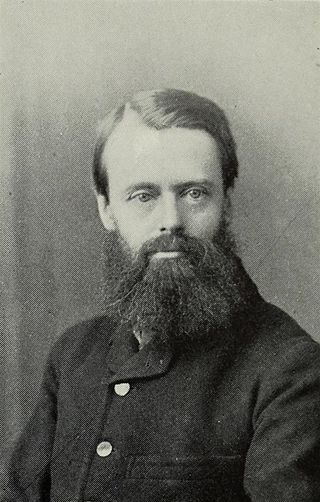
David Binning Monro, FBA was a Scottish Homeric scholar, Provost of Oriel College, Oxford, and Vice-Chancellor of Oxford University.
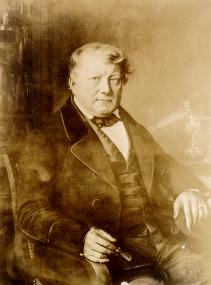
Christian Friedrich Schönbein HFRSE(18 October 1799 – 29 August 1868) was a German-Swiss chemist who is best known for inventing the fuel cell (1838) at the same time as William Robert Grove and his discoveries of guncotton and ozone.

The Royal Society of Edinburgh (RSE) is Scotland's national academy of science and letters. It is a registered charity that operates on a wholly independent and non-partisan basis and provides public benefit throughout Scotland. It was established in 1783. As of 2021, there are around 1,800 Fellows.

Bedford College was founded in London in 1849 as the first higher education college for women in the United Kingdom. In 1900, it became a constituent of the University of London. Having played a leading role in the advancement of women in higher education and public life in general, it became fully coeducational in the 1960s. In 1985, Bedford College merged with Royal Holloway College, another constituent of the University of London, to form Royal Holloway and Bedford New College. This remains the official name, but it is commonly called Royal Holloway, University of London (RHUL).
The Arundel Society, often called the Arundel Club, was founded in London in 1849 and named after the Earl of Arundel, the famous collector of the Arundel Marbles and one of the first great English patrons and lovers of the arts. The society was originally the idea of the lawyer Bellenden Ker and was founded at a meeting in the house of the famous painter Charles Eastlake, attended by Eastlake, Ker, Giovanni Aubrey Bezzi, and Edmund Oldfield. The society's purpose was to promote knowledge of the art works of the old Italian, Flemish, and other European masters. Much of the work of the society consisted of publishing chromolithographs of Italian art works, especially fresco paintings, of earlier centuries and raising public awareness for the preservation of these works. One of the people most responsible for furthering the goals of the society was Henry Layard, who joined in 1852. Some of the other important early members were John Ruskin, Charles Thomas Newton, and Henry Liddell. Members of the Society's Council in 1877 included Frederick William Burton, Lord Elcho, Edward Poynter, George Edmund Street, Philip Charles Hardwick, George Richmond, and the architect John Norton. The society was discontinued in 1897.
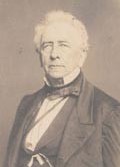
Charles King was an American academic, politician and newspaper editor. He succeeded Nathaniel Fish Moore to become the ninth president of Columbia College, holding the role from November 1849 until 1864.
Kate Norgate was a British historian. She was one of the first women to achieve academic success in this sphere, and is best known for her history of England under the Angevin kings and for coining the name Angevin Empire to describe their domains. She was self-educated in the Victorian era when higher education was generally denied to women. Her obituary in The Times described her as "the most learned woman historian of the pre-academic period."

Charles Frederick D'Arcy was a Church of Ireland bishop. He was the Bishop of Clogher from 1903 to 1907 when he was translated to become Bishop of Ossory, Ferns and Leighlin before then becoming the Bishop of Down, Connor and Dromore. He was then briefly the Archbishop of Dublin and finally, from 1920 until his death, Archbishop of Armagh. He was also a theologian, author and botanist.
Thomas Graves Law (1836–1904) was an English Oratorian priest, and later in life a historian and bibliographer.
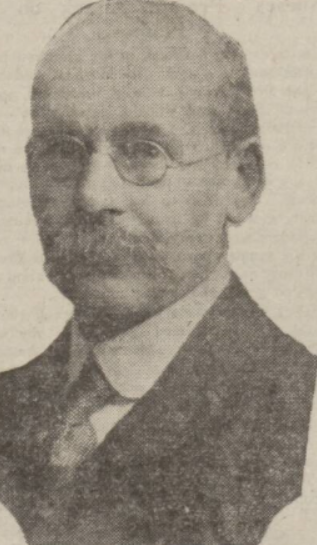
John Nicol Farquhar was a Scottish educational missionary to Calcutta, and an Orientalist. He is one of the pioneers who popularised the Fulfilment theology in India that Christ is the crown of Hinduism, though, Fulfilment thesis in Bengal was built on foundation originally laid in Madras by William Miller.

Victor Branford was a British sociologist. He was the founder of the Sociological Society and was made an Honorary member of the American Sociological Society, now the American Sociological Association.
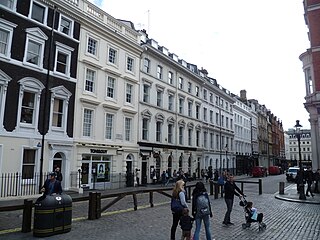
Henrietta Street is a street in Covent Garden, London, that was once home to a number of artists and later became the location of many publishing firms.
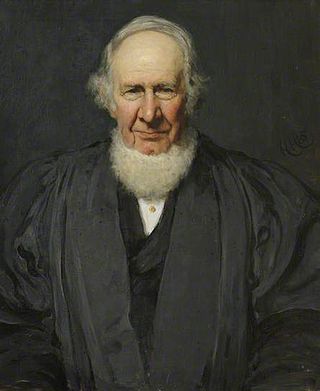
George Phillips, was an English churchman and academic, known as an orientalist and mathematician. He was also the Rector of Sandon, Essex, the President of Queens' College, Cambridge, from 1857 until his death and Vice-Chancellor of Cambridge University from 1861 to 1862.

Sir Thomas Jamieson Boyd, publisher and philanthropist, was Lord Provost of Edinburgh from 1877 to 1882. He was the catalyst behind the building of the Edinburgh Royal Infirmary on Lauriston Place.

Joseph Estlin Carpenter was an English Unitarian minister, the principal of Manchester College, Oxford. He was an expert in Sanskrit and a pioneer in the study of comparative religion.
Thomas Smith was a Scottish missionary and mathematician who was instrumental in establishing India's zenana missions in 1854. He served as Moderator of the General Assembly of the Free Church of Scotland 1891/92.
Frederick William Gamble was a zoologist and author.
Jonathan Birch (1783–1847) was an English author, best known as the translator of Goethe's Faust dramas.
References
- ↑ Williams & Norgate. Darwin Correspondence Project. Retrieved 2 October 2014.
- ↑ Edmund Sydney Williams, 1817 - 1891 Autobiography. Williams Family Genealogy Research Pages Retrieved 2 October 2014.
- ↑ R.K. Webb, "Norgate, Thomas Starling (1772–1859)", Oxford Dictionary of National Biography, Oxford University Press, 2004. oxforddnb.com Accessed 2 Oct 2014.
- ↑ Edmund Sydney Williams Autobiography. Williams Family Genealogy Research Pages Retrieved 27 February 2022.
- ↑ The British Museum Archives www.britishmuseum.org Retrieved 27 February 2022.
- ↑ Crown Theological Library (Williams and Norgate) – Book Series List, publishinghistory.com. Retrieved 26 January 2019.
- ↑ Home University Library, seriesofseries.com. Retrieved 26 January 2019.